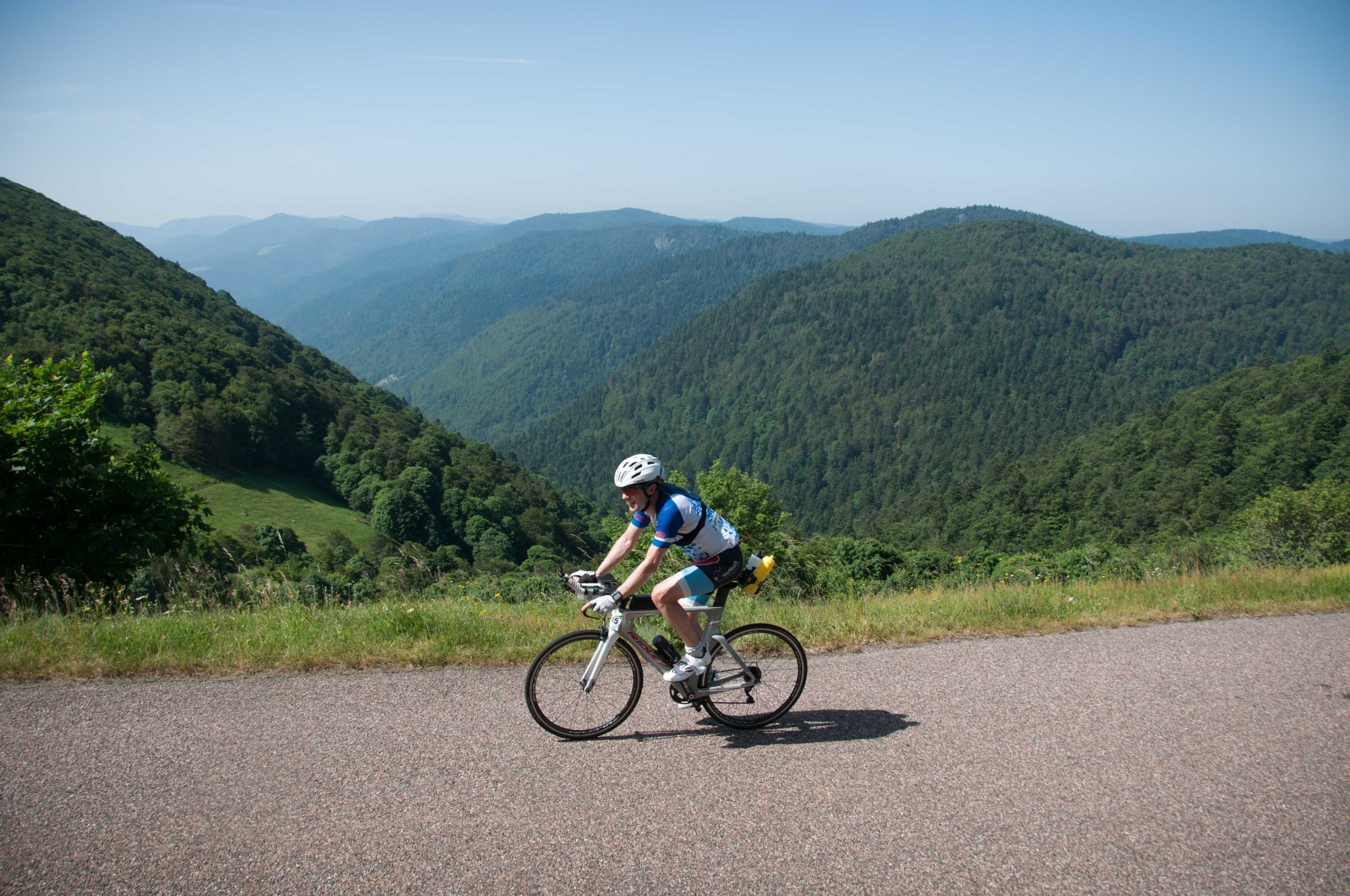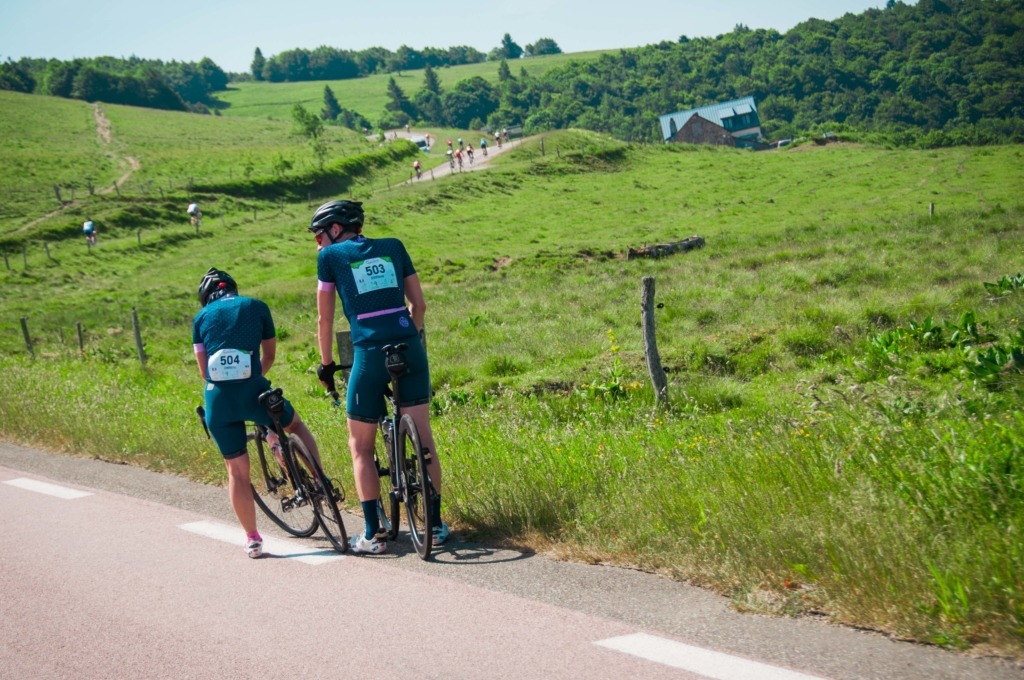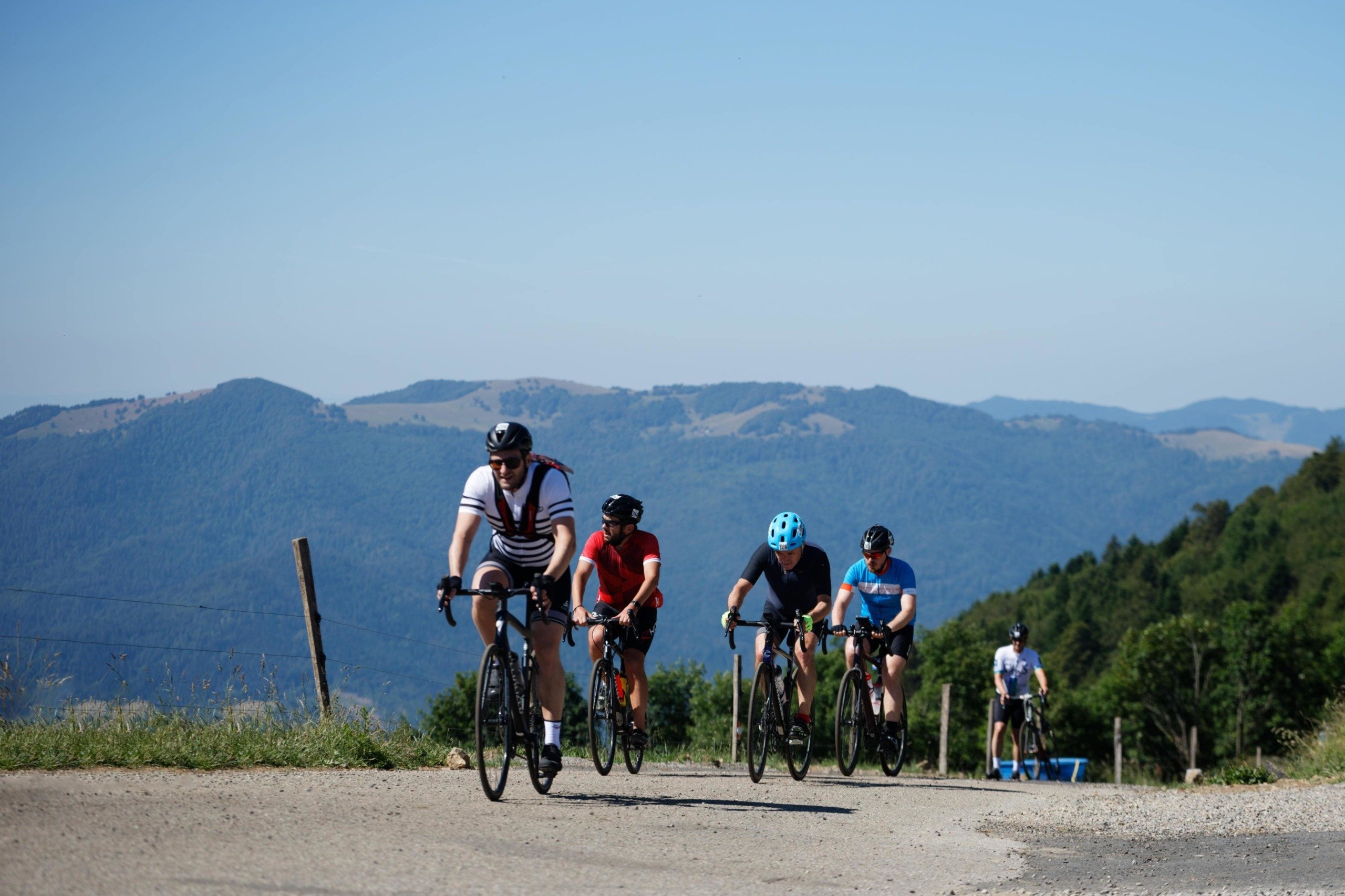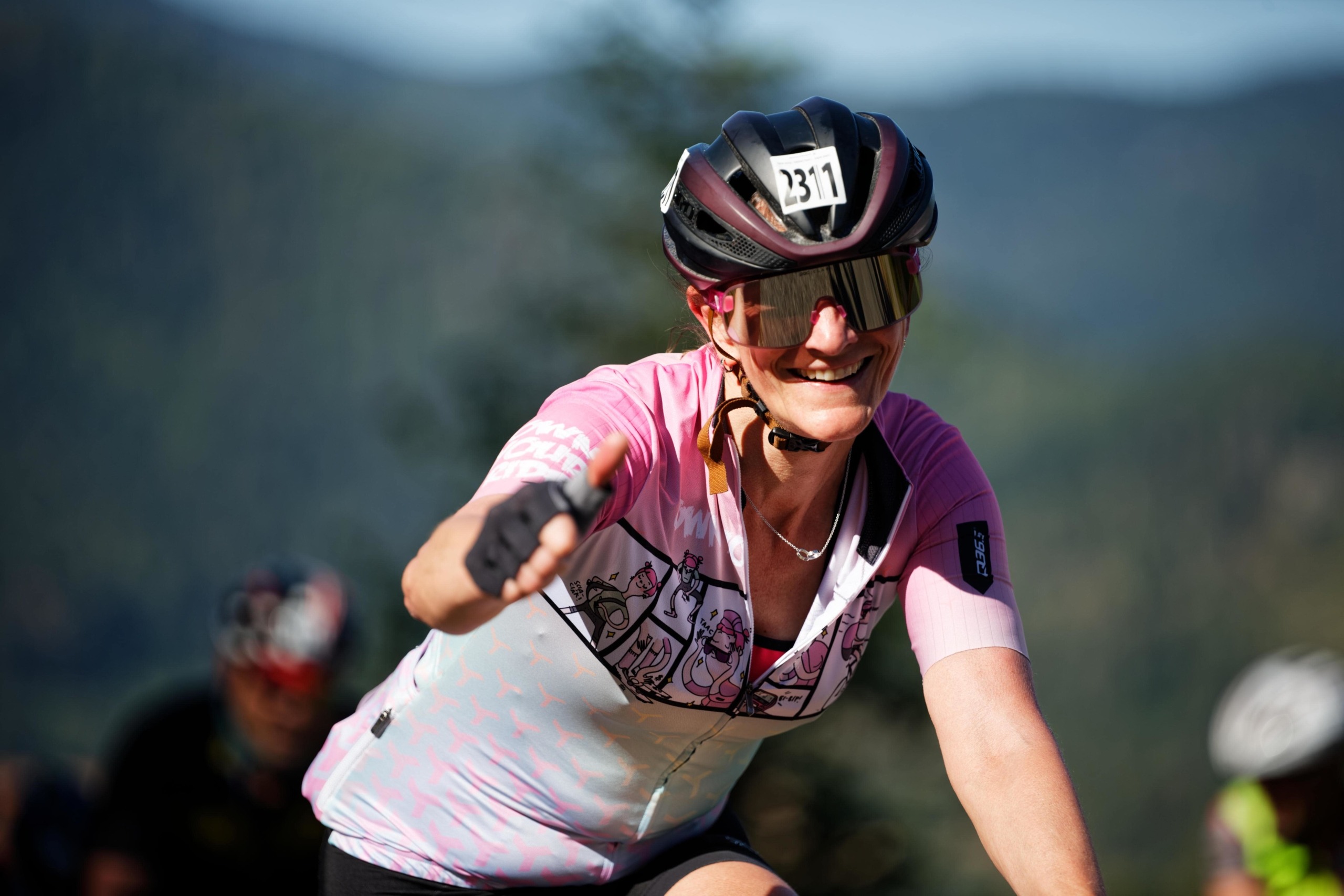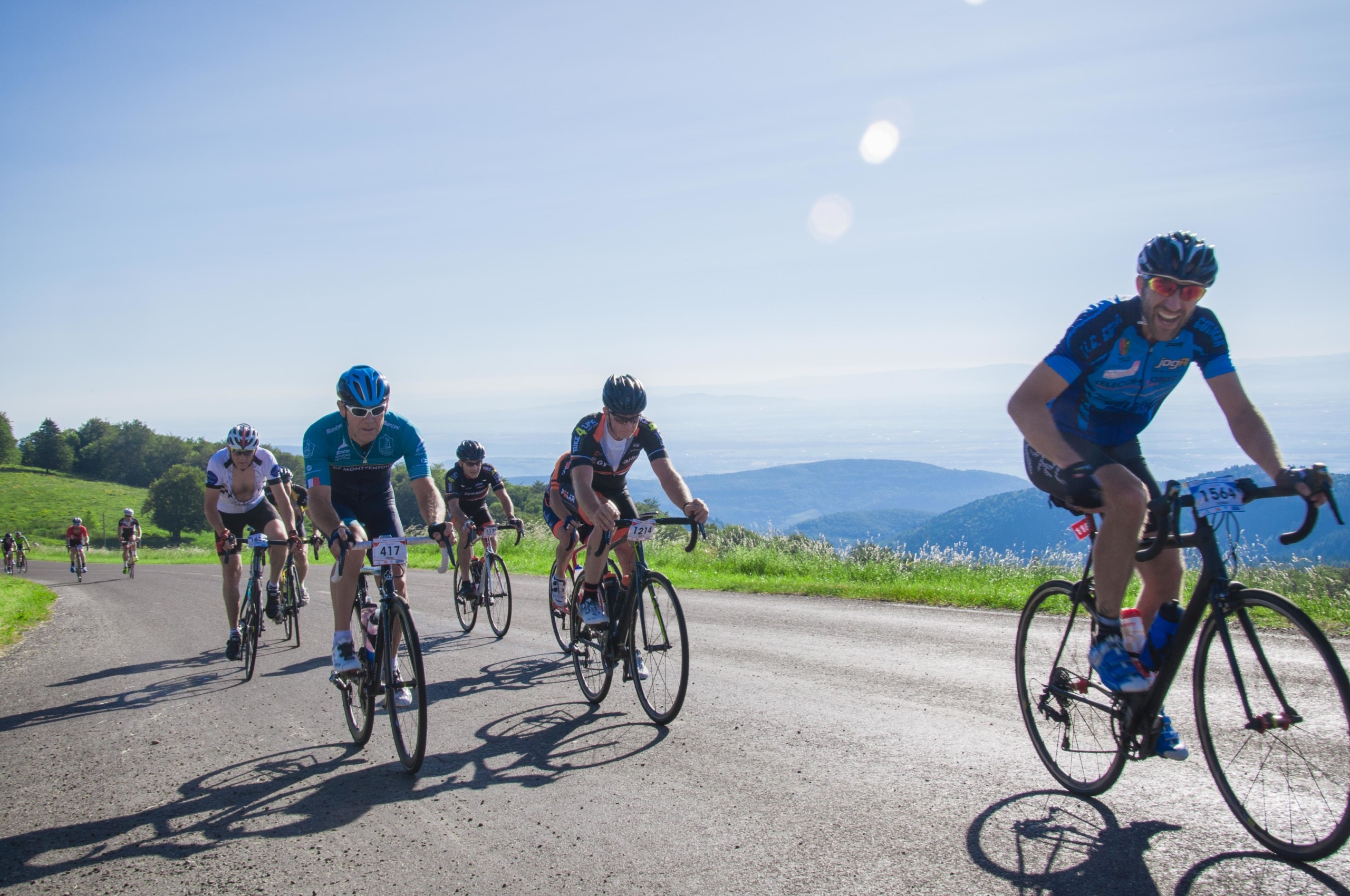The Vosges Gran Fondo scheduled for 29 June is above all a personal sporting challenge: it is up to each person to choose the circuit and their own aims, to pit themselves against the other competitors.
Nevertheless, friendliness remains the key word of the day, and a group spirit will drive on the participants and volunteers of L’Alsacienne.
Your training can be just like the event: necessarily personalised, but enhanced thanks to others.
A training plan... of course.
The basic rule is to personalise your practice. (Reread our article about this subject). By personalising your practice it is possible to draw up a training plan in which the different factors (distance, profile, specific exercises, duration and intensity) can be specified for each ride. To follow the plan you clearly have to ride alone.
So what about riding with others? Do you have to cut yourself off from others to train seriously for the Vosges Gran Fondo? Not necessarily...
Ride in a group... even so!
If you have the opportunity, it is in fact unnecessary to avoid group rides which, on the contrary may prove particularly beneficial for several reasons:
- It is motivating to ride in a group, generating a real energy so you can’t wait to get on your bike and join friends who share your passion for cycling. Maybe there are even several of you training for the Vosges Gran Fondo?
- Group rides are stimulating and at times encourage you to go outside your comfort zone. With short races up hills, riding in a group be a bit like the Tour de France! Fartlek*-style training will certainly be more fun than a strictly defined division of exercise.
- By reproducing the conditions of a pack, riding with others makes it possible to improve your technical skills . Drafting, riding at the front without being nervous, riding downhill confidently... all these skills are very useful and should not be neglected.
- By providing opportunities to chat, riding with cyclist friends enriches sporting activities with social relationships , possible encouragements and advice. And as we know, the mind has a very important role in sports performance...
Group sessions: a few tips.
If you take advantage of group rides as often as possible (in a club or informal group), it is still better to respect certain rules.
- Avoid racing at each session in a pack . You may neglect moderate-intensity rides and suffer from overtraining. It is probably better to add sessions on your own, especially if the overall level of your friends appears to you to be high.
- Don’t make your average the goal of all the group sessions. In concrete terms, by always riding fast you won’t learn to ride very fast! Your progress will be limited, and above all you will wear yourself out little by little over the course of the season. Qualitative sessions, alternating between intense effort and active recovery, may prove far more effective.
- Take advantage of the advice of your most experienced friends, but also listen to yourself . Don’t let yourself be influenced by the others all the time. You have your own aims and your own personal constraints. Also, identifying signs of tiredness will sometimes encourage you to shorten certain group sessions, or completely cancel them. That’s fine!
- Don't fall into the trap of always comparing yourself to the other riders at all group sessions. These sessions must be above all a source of motivation and not of disappointment. It may therefore be necessary sometimes to change club or group.
The ideal mix for a successful Vosges Gran Fondo
In short, the optimum preparation for the Vosges Gran Fondo at L’Alsacienne, appears to be one that makes it possible to combine both types of training :
- Solitary sessions focussed on personalised training. These will enable you to develop a specific skill or else to ride at moderate intensity (on longer or recovery rides).
- Sessions riding in a pack, necessary to learn technical skills, are particularly motivating, more fun, and sometimes force you to surpass yourself.
*Fartlek: Swedish term meaning an exercise that alternates quite intense effort with active recovery periods. In practical terms it involves varying the profile, where the alternation in speed is not really defined.
Éric GEHIN
Conseiller sportif Breveté d’Etat
DU Biologie de l’Entraînement


